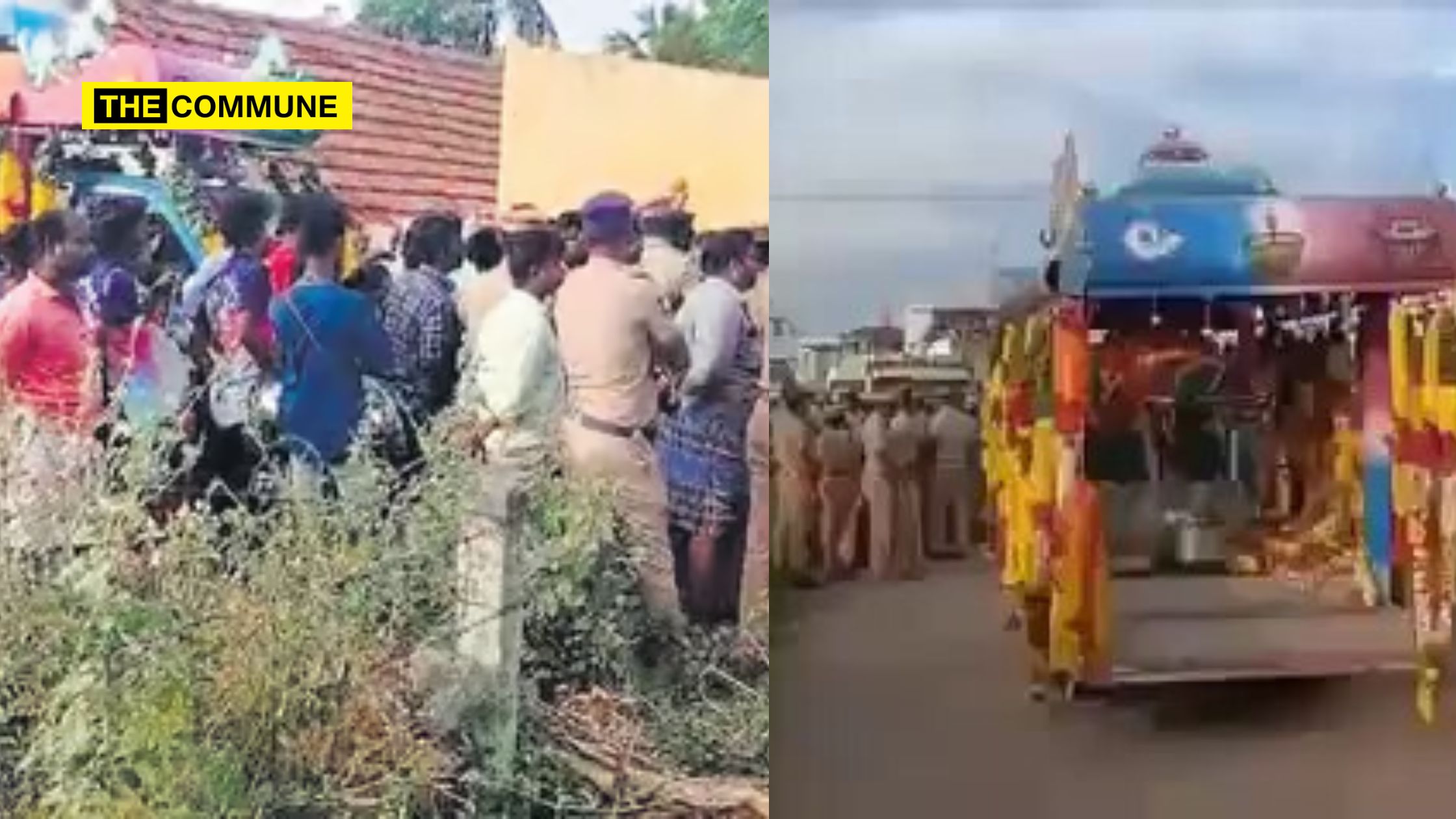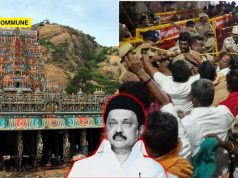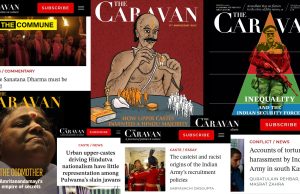
In Mothakkal village, Thandrampet taluk of Tiruvannamalai district, authorities halted the funeral procession of a 56-year-old Dalit woman on Monday, 30 September 2024, preventing it from passing through a common path shared by both Dalits and caste Hindus in the area. The deceased, T. Kiliyammal, had died in Chennai the day before, and her body was brought back to her native village for cremation.
While the SC (Scheduled Caste) community members decided to use the common tar road for her funeral, breaking from the customary mud road historically used by Dalits, local officials intervened, citing possible law and order issues. “Permitting them could have resulted in unnecessary law and order problems,“ an official source told The New Indian Express. However, it was noted that the Hindus in the village had not raised any objections regarding the use of the common route.
Dalit villagers expressed frustration, stating their request to use the common path was reasonable. “We have been using the customary route for generations. We requested the authorities to use the common path this time, but police and revenue officials stopped us. This is unacceptable,“ said a resident from the SC community in Tiruvannamalai.
The deceased’s body was eventually taken along the customary mud road and cremated later that night without any incidents.
Boycotting Dalits – Not New To Village
In 2023, in the same village, Dalits faced systemic discrimination, particularly about accessing barber services. Out of approximately 5,000 residents, 150 families belong to the Dalit community. Dalits reported being denied haircuts by all four barbers in the village, who allegedly face pressure and threats from the upper caste Vanniyar community. One barber shared that after serving Dalit customers, he was threatened, forcing him to comply with caste dictates for fear of losing his livelihood.
Dalit students in the village also were said to face discrimination at school. As reported in TNIE, one student noted that teachers criticized their hairstyle, forcing them to shave their heads, while non-Dalit students were not subjected to the same treatment. Additionally, a teacher allegedly tore a photo of Dr. B. R. Ambedkar from a student’s belongings, with the justification that no images of caste leaders are allowed.
Further, caste-based segregation extended to the use of separate tumblers for Dalits and upper caste members, a practice that persists despite repeated complaints to local authorities. Dalits also faced exclusion from the village panchayat office located in their area, with upper-caste villagers refusing to enter the premises. A new panchayat office was built in response to pressure from dominant castes.
There were also reports of bias in the distribution of government welfare schemes. Dalit students received defective bicycles under a government scheme, and many have dropped out of school due to persistent discrimination. Despite these complaints, local officials, including a school’s headmaster, denied discrimination.
Subscribe to our Telegram, WhatsApp, and Instagram channels and get the best stories of the day delivered to you personally.




